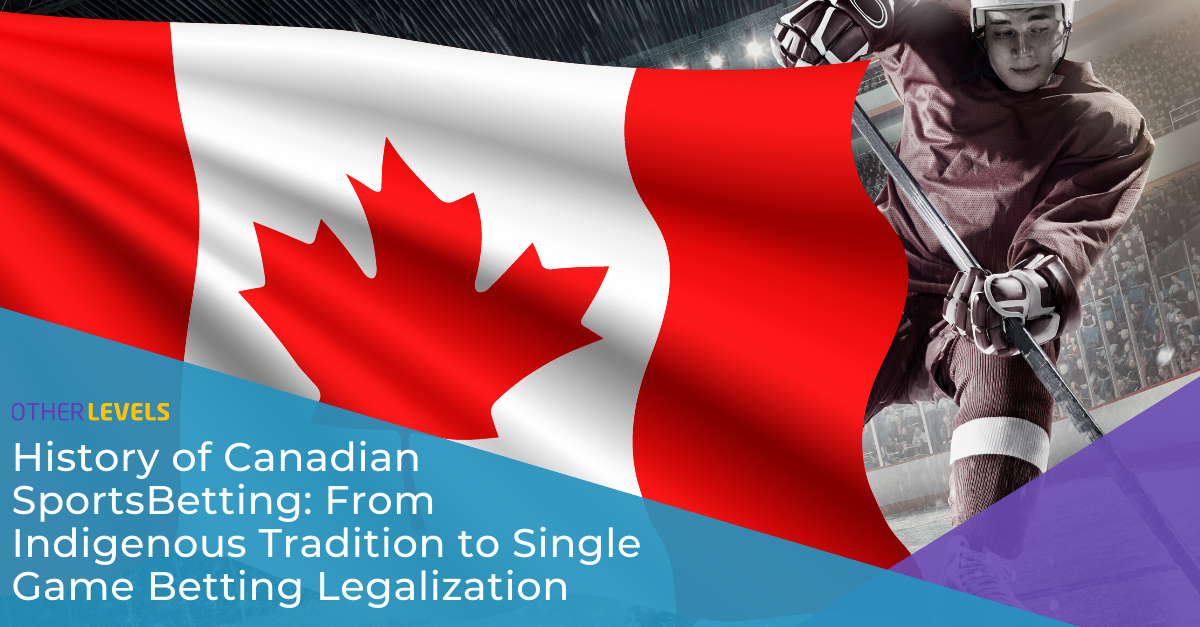Since people have occupied Canada, they have been gambling. Western tribes bordering the Pacific Ocean played a game of chance they called Slahal. One team throws two sets of two bones, one hatched with a line. While the other team must guess what their throw produced. Watching members would bet on who they thought would win. It was both a social gathering and a way to gain wealth. To this day, the game still holds deep cultural ties. All of that changed with the coming of the French and English. With colonization came the restriction of all forms of gambling, except for horse racing.
It went underground…
Canadians spent the next 77 years with very few options for legal gambling. Illegal and underground betting rings became the only option for those wishing to test their luck to win big. It became so widespread, there was no way to regulate illegal betting operations.The Canadian Government authorized provincial lotteries IF the proceeds were given to charity in 1969. The government slowly started making amendments to the Criminal Code to allow for more and more gambling options after seeing the sheer amount of money that was generated by gambling.
Starting to see the light…
These amendments were slow to come, leaving Canada behind in the boom of gambling. Until 1990, sports betting could only be done illegally. Millions of Canadians made under-the-table bets while watching the game from their couch. To counteract this, the government allowed for the creation of province-run sports lotteries such as Proline and Mise-O-Jeux. Canadians were excited to walk to their local corner store to bet on the week’s upcoming games! But these province-run sports betting systems were highly restrictive; only allowing for parlay bets as they had to stay within the lottery ticket format.
In order to win, players would have to guess correctly on 3 separate games. A difficult task when already betting against the 53% spread! The rules and regulations differed greatly from province to province causing confusion between players, especially regarding tie rules. In Quebec, there are NO ties. While in British Columbia, basketball games decided by 5 points or less and football games decided by 3 points are considered ties. For certain areas of Canada, Proline makes a lot of winning cards into losing cards. Players are only able to bet a maximum of $100 which does not result in high winnings for them.
All these issues had Canadians looking elsewhere for their betting needs. ‘In Canada alone,’ TSN states, ‘an estimated $10 billion is bet through illegal booking operations by organized crime, according to the Canadian Gaming Association, and another $5 billion goes to offshore online sports books.’ Canadian politicians finally noticed the loss of billions of dollars in tax money. This made the topic of legalizing single-game sports betting a hot topic. Those in favor argued that legalization would lead to better monitoring of the industry, to ensure no match-fixing occurs. Outside of the revenue lost, illegal sportsbooks usually funds other illegal activity in the area. While those on the opposing side believe that legalizing single-game sports betting will simply add to gambling addiction statistics.
A shining future…
In 2012, the Canadian House of Commons passed Bill C-290 but was never approved by the senate. This lack of approval caused Bill C-290 to fall off in summer 2015, leaving the bill to pass into memory. In 2020, MP Kevin Waugh authored Bill C-218 to once again, legalize single-game sports betting on a federal level. After years of debates and pushbacks, single-game sports betting was legalized on August 27, 2021.
So, where are we now? Within the first week of legalization, Ontario, Canada’s most population dense province, cleared $1 million dollars. As more and more options open up for Canadians, the results will speak for themselves. The taxable revenue will fund the communities, hospitals, and the schools of Canada which so dearly need it. But the opening up to commercial operators will be a slower process than the commencement of the provincial lotteries. Ontario is the first province to start opening up the market to commercial operators. Unfortunately, this will not come to full fruition until at least March 2022. Even so, many operators are looking to Ontario for their next venture. During her time at SBC 2021 Summit North America, Jenny Lu noticed the excitement in the Ontario market from some of the industry greats. Ontario, are you ready?
Do you want to engage with Canadian bettors? Want to capitalize on the Canadian market upswing? Otherlevels Sports Engagement Platform can help you stand out above the rest! The OtherLevels Sports Engagement Platform is a sports-powered CEP, combining sophisticated content, publishing capabilities and multiple live sports and betting odds feeds to engage sports players pre-game, live during the game and post sports games.
Want to learn more? Click Here!





Pingback: 2021 iGaming Highlights